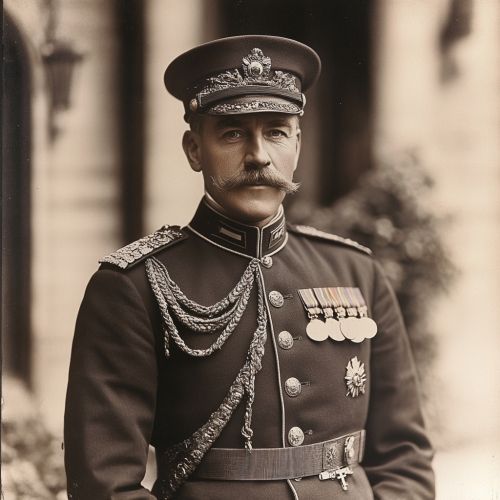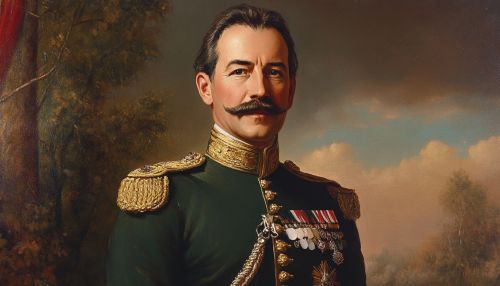Walther von Reichenau
Early Life and Military Career
Walther von Reichenau was born on October 8, 1884, in Karlsruhe, Germany. He was a prominent figure in the German military, particularly during the World War II. Reichenau hailed from a family with a strong military tradition; his father, Ernst August von Reichenau, was a Prussian general. This background significantly influenced his career path, leading him to join the German Army in 1903.
Reichenau attended the Prussian Military Academy, where he received rigorous training. His early career saw him serving in various capacities, including staff positions and field commands. By the outbreak of World War I, Reichenau had risen to the rank of lieutenant. During the war, he served with distinction on both the Western and Eastern Fronts, earning several decorations for bravery and leadership.
Interwar Period
Following World War I, Reichenau remained in the military, joining the Reichswehr, the armed forces of the Weimar Republic. The Treaty of Versailles had imposed severe restrictions on the size and capabilities of the German military, but Reichenau navigated these limitations adeptly. He was involved in the clandestine rearmament efforts that sought to circumvent the treaty's restrictions.
In the 1920s and 1930s, Reichenau's career advanced steadily. He became known for his strategic acumen and ability to adapt to the rapidly changing political and military landscape of Germany. His loyalty to the Nazi Party and its leader, Adolf Hitler, played a crucial role in his rise through the ranks. By 1935, he had been promoted to the rank of Generalmajor and was actively involved in the reorganization and expansion of the German Army.
World War II
Invasion of Poland
At the onset of World War II, Reichenau commanded the 10th Army during the Invasion of Poland in September 1939. His forces played a pivotal role in the swift and brutal campaign that led to the rapid defeat of Polish forces. Reichenau's leadership was characterized by aggressive tactics and a willingness to employ overwhelming force to achieve strategic objectives.
Western Front
Following the successful campaign in Poland, Reichenau was transferred to the Western Front, where he commanded the 6th Army during the Battle of France in 1940. His army was instrumental in the German breakthrough at Sedan, which led to the encirclement of Allied forces and the eventual fall of France. Reichenau's ability to coordinate large-scale armored and infantry operations earned him further accolades and promotions.
Eastern Front
In 1941, Reichenau was appointed to command Army Group South during Operation Barbarossa, the invasion of the Soviet Union. This campaign marked one of the most significant and brutal phases of World War II. Reichenau's forces were responsible for several key victories, including the capture of Kiev and the encirclement of Soviet forces in the Battle of Uman.
However, Reichenau's tenure on the Eastern Front was also marked by his involvement in war crimes. He issued the infamous "Severity Order" in October 1941, which called for harsh measures against Soviet partisans and the Jewish population. This order contributed to the widespread atrocities committed by German forces in the occupied territories.


Death and Legacy
Walther von Reichenau's career was cut short when he suffered a stroke in January 1942. He was evacuated to Leipzig for medical treatment but died on January 17, 1942. His death marked the end of a controversial and complex military career.
Reichenau's legacy is a subject of considerable debate among historians. While he was undoubtedly a skilled military commander, his complicity in the Holocaust and other war crimes has overshadowed his achievements. His actions during World War II have been scrutinized in the context of the broader atrocities committed by the Nazi regime.
